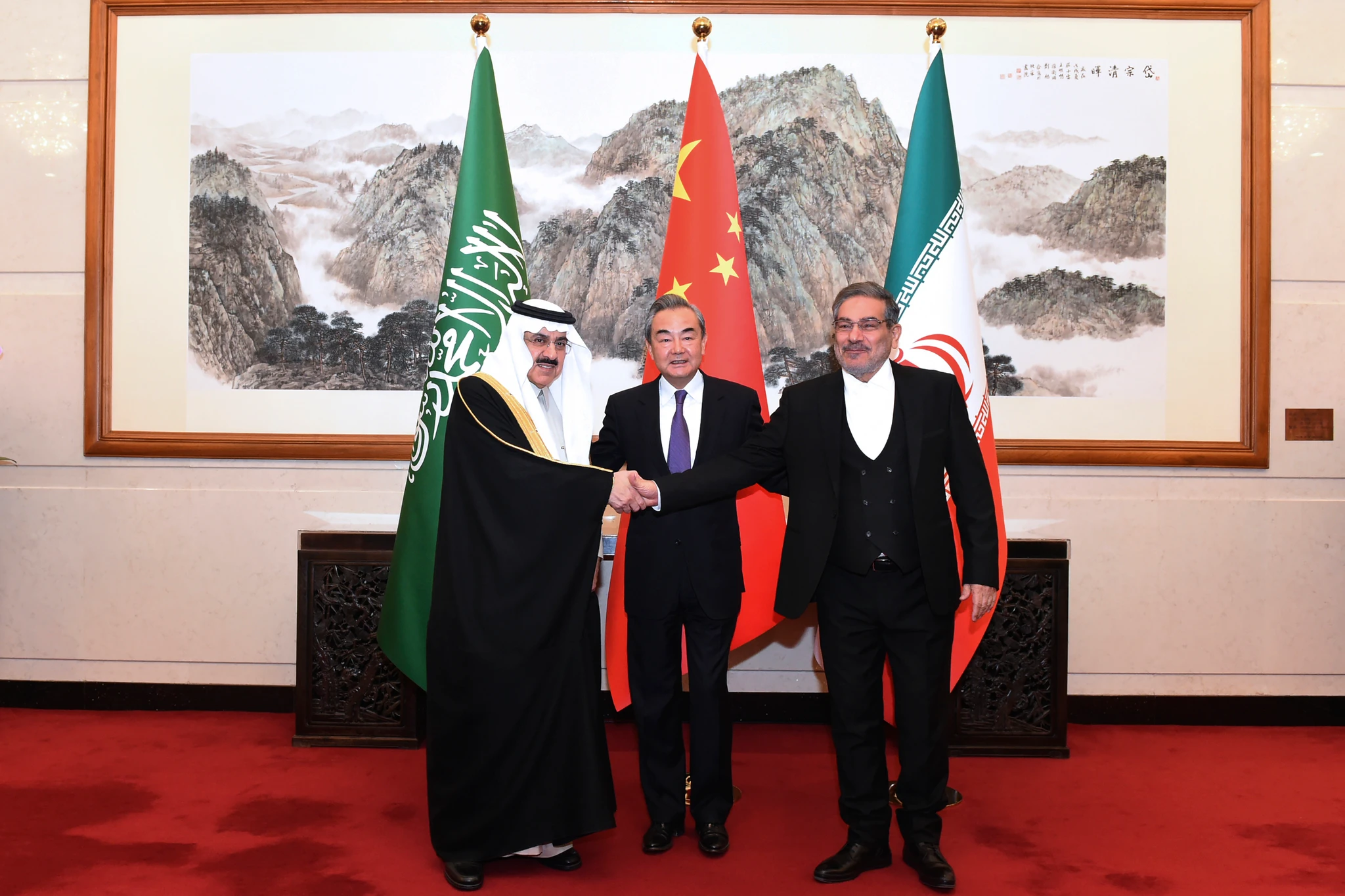Iran – Saudi deal could foster peace, stability in Middle East

Iran and Saudi Arabia were locked for years in a fierce battle for hegemony in the Middle East that contributed to chaos and conflict in the region.
The surprise diplomatic rapprochement between the two leading regional powers brokered by China is a welcome development that could help ease tensions in the region.
After years of acrimonious confrontation across the Persian Gulf, a crucial maritime waterway, Saudi Arabia and Iran have agreed to re-establish diplomatic ties that were severed seven years ago.
Striking a deal in the talks hosted by China, Iran and Saudi Arabia announced last week that they will normalize diplomatic relations and reopen embassies in each other’s countries within two months.
The two regional rivals should implement their agreement on faithfully restoring ties to contribute to the stability of the entire Middle East.
Iran has a history of interfering in civil war and international politics in surrounding Arab nations to boost its influence in the region. Tehran’s strategic ambitions have alarmed Saudi Arabia and other Arab nations. Riyadh led Arab nations’ efforts to counter Iran.
While Iran’s people overwhelmingly are adherents of the minority Shia branch of Islam that is the country’s state religion, Saudi Arabia considers itself as the leader of Sunni Islam. The rivalry between the two Islamic nations has also fueled conflict between the two Islam branches.
The antagonism between Sunni and Shia Muslims has manifested itself violently in civil war in Yemen, which has turned into an increasingly vicious proxy war between Saudi Arabia and its allies and Iran.
Yemen has been battered for eight years by fighting between its Saudi-supported interim government and a Shia militia supported by Iran and known widely as the Houthis.
Eight years of grinding combat have shattered the Yemeni state, spawning what is called “the world’s worst humanitarian crisis.” More than 20 million Yemenis, nearly 70 percent of the population, need emergency relief aid for survival.
The dire situation must not be allowed to continue. Talks to end the conflict should start immediately.
What is particularly notable about the thaw between Iran and Saudi Arabia is the fact that the deal was brokered by China, not by the United States, which has long wielded pre-eminent influence in the Middle East.
Beijing has used its growing economic clout with these countries in playing a pivotal role in engineering the deal.
But there are concerns about the agreement, arrived at without the involvement of Washington.
One is how Israel, which is in a bitter confrontation with Iran, will respond. Israel has improved its ties with some Arab nations in recent years after decades of conflict since its founding by casting Iran as a common enemy.
If Saudi Arabia, the leader of Arab nations, develops closer ties with Iran, Israel could become isolated again and take an even more hard-line stance toward Tehran. That could lead to a new armed conflict with dire global consequences.
The only country that can rein in Israel’s reckless moves is the United States, which has been providing massive military aid to the Jewish state for many years.
Another source of worry is the generally poor human rights conditions in the Middle East, where the regional pro-democracy movement called the “Arab Spring” was crushed and is dominated by authoritarian regimes.
Saudi Arabia, an absolute monarchy without elections or a legislature, and Iran, a theocracy ruled by a group of religious leaders and their lay associates, have both been roundly criticized by the West for their dismal human rights records.
The joint statement about the agreement issued by Saudi Arabia, Iran and China refers to their commitment to the principle of “non-interference in internal affairs of states.”
This raises concerns that Beijing, which does not criticize Saudi Arabia, Iran or any other countries in the Middle East over issues concerning freedom and human rights, will further increase its influence in the region, allowing authoritarian regimes to suppress pro-democracy movements.
Causes of conflict and destabilization, however, will remain in the region over the long term. That makes it all the more important that Western democracies, including Japan, continue their commitment to promoting stability in the Middle East.
Source : The Asahi Shimbun



